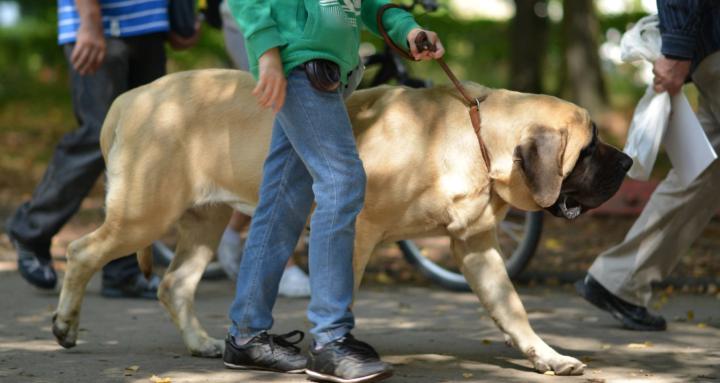Mar '25 (edited) • Articles
Mastering Mastiff Training: 10 Essential Tips for Raising a Well-Behaved Gentle Giant 🐾🎓
Training a Mastiff requires understanding, patience, and consistency, given their size and natural guarding instincts. Proper training ensures they become well-behaved companions. Here are essential tips to guide you:
1. Start Training Early
Begin training your Mastiff between 8 to 10 weeks of age. Early training helps instill good habits and prevents the development of undesirable behaviors.
2. Prioritize Socialization
Expose your Mastiff to various people, environments, and other dogs from a young age. This exposure helps them become well-rounded and reduces the likelihood of aggression or fearfulness.
3. Use Positive Reinforcement
Mastiffs respond best to positive reinforcement techniques. Reward desired behaviors with treats, praise, or affection to encourage repetition.
4. Keep Training Sessions Short
Limit training sessions to about 15 minutes to maintain your Mastiff's attention and prevent boredom. Short, frequent sessions are more effective than longer, infrequent ones.
5. Establish a Routine
Consistency is key in training. Establish a daily routine for feeding, exercise, and training to provide structure and help your Mastiff understand expectations.
6. Focus on Basic Commands
Teach essential commands such as sit, stay, come, and heel. These commands form the foundation of good behavior and ensure safety in various situations.
7. Be Patient and Consistent
Mastiffs can be stubborn, so patience and consistency are crucial. Avoid harsh training methods, as they can lead to fear or aggression. Instead, maintain a calm and assertive demeanor.
8. Implement House Training
Establish a feeding schedule and take your Mastiff outside shortly after meals to encourage proper elimination habits. Praise them when they eliminate outside to reinforce the behavior.
9. Avoid Harsh Training Methods
Mastiffs are sensitive and do not respond well to scolding or negative training tactics. Harsh methods can lead to defensive or aggressive behavior. Focus on positive reinforcement to build trust and encourage learning.
10. Seek Professional Help if Needed
If you encounter challenges or feel uncertain about training your Mastiff, consider consulting a professional dog trainer experienced with large breeds. Professional guidance can provide tailored strategies to address specific issues.
By implementing these strategies, you can foster a strong bond with your Mastiff and ensure they grow into a well-behaved and cherished member of your family.
0
0 comments

skool.com/mastiffs-are-the-best-3540
Join the EXCLUSIVE Mastiff community! 🐾 Mostly just a bunch of people who LOVE their mastiff & think their life is better off with them around.
Powered by
